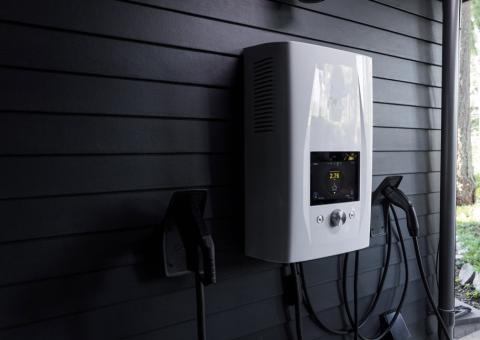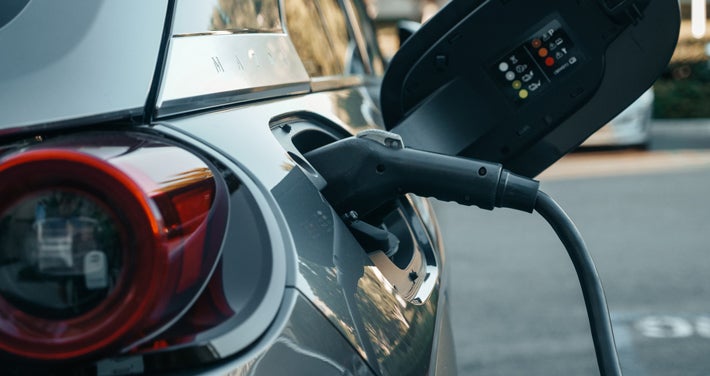Historically, Unitil customers have paid a flat rate per kilowatt hour for electricity. The introduction of time-of-use rates, by contrast, provides customers with more control over their energy costs, with tiered rates that encourage moving the bulk of their electricity use to off-peak hours when rates are at their lowest. For example, EV owners who switch to Time-of-Use and charge their vehicle overnight could see significant savings.
Time of Use (TOU) rates were introduced to Unitil’s New Hampshire electric customers in 2022 and Massachusetts electric customers in 2023. A Whole House TOU rate is available to NH residential customers, while an Electric Vehicle (EV) TOU rate is available to NH and MA residential as well as NH commercial customers.
Time-of-use rates are broken up into three pricing tiers: mid-peak, on-peak, and off-peak. Mid-peak hours are Monday through Friday, from 6 a.m. to 3 p.m. with pricing that is approximately the same as the standard rate. On-peak hours are Monday through Friday from 3 p.m. to 8 p.m., during which pricing is about three times the standard rate. Off-peak hours are weekdays between 8 p.m. and 6 a.m., plus all weekend and holiday hours. Pricing for off-peak hours is approximately 30% less than the standard rate.
One of the many benefits to owning an electric vehicle is significantly reduced fuel costs compared to a traditional gas-powered vehicle. Exact savings vary greatly by state, type of vehicle, driving habits, and how and where the vehicle is charged, but a 2020 Consumer Reports study found that EV owners will spend as much as 60% less on fuel per year.
With the EV Time-of-Use rate, EV owners have the opportunity to amplify their fuel savings even further by charging their vehicle during off-peak hours when TOU rates are at their lowest. Fortunately, most electric vehicles and level 2 chargers provide the option to schedule charging to begin and end at certain times, making it easy to ensure charging occurs during off-peak hours.
While many EV owners opt to install a level 2 charger at their home, no special charging equipment is required to sign up for the EV time-of-use rate. Click here to learn more about EV charging options.
Because the time-of-use rates are the same for whole-house and EV customers, there’s no need to install a second meter if you are a NH residential customer who is also opting in to the whole-house time-of-use program. However, if you prefer to keep your home service on the standard rate plan, a separate electric meter is required to participate in the EV TOU rate. In this case, Unitil will install a dedicated meter which will carry a nominal monthly fee, and you will need to hire an electrician to install an additional meter socket to house the new meter.
Customers who opt-in to Unitil’s EV time-of-use rate program commit to a 12-month term, after which they are free to switch back to standard pricing if they wish.
Switching to a time-of-use rate structure is completely optional, and we encourage customers to assess their current usage to determine whether it’s a good fit before opting into the program. Check out our rate comparison calculator to compare rates and estimate future costs.
Electric Vehicle Time of Use Key Takeaways
- The meter itself carries a nominal monthly charge, and you’re responsible for the cost of the electrical work to install an additional meter socket.
- Nine-to-fivers who work Monday through Friday are likely good candidates for the EV time-of-use rates, as they probably already charge their EV overnight.
- New Hampshire residential electric customers may opt-in to either whole-house or EV time-of-use billing.




